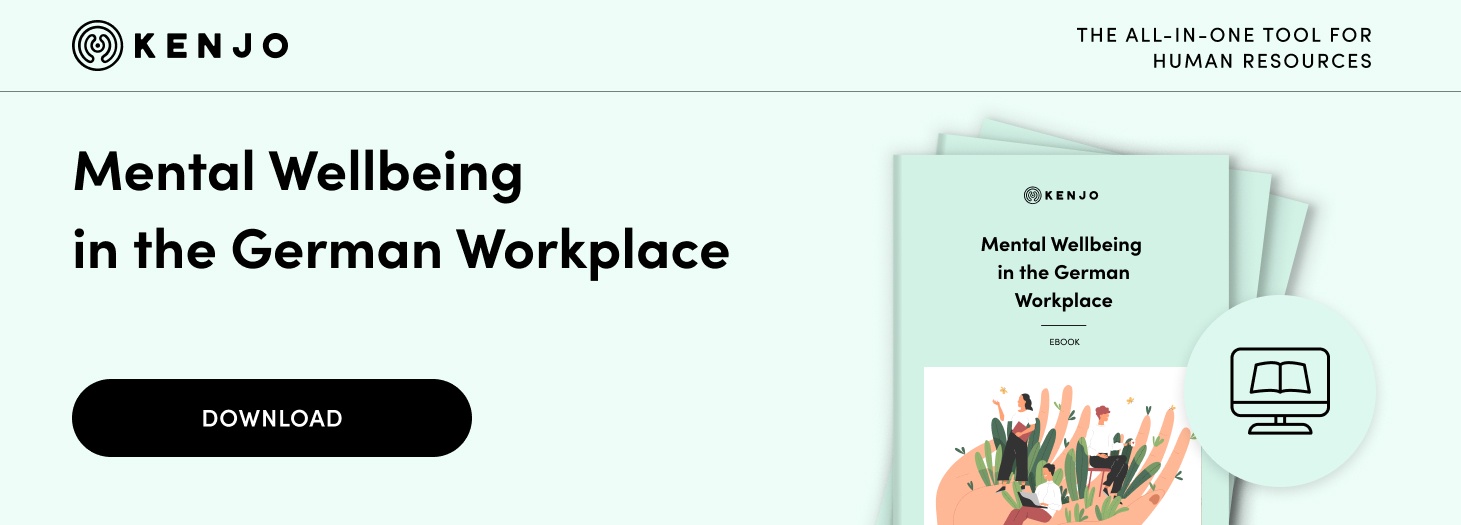Interview with Livia Mirón, Country Manager Appinio.
When it comes to guaranteeing employee emotional wellbeing, our key tools include analyses of the workplace environment and the level of staff contentment and staff satisfaction questionnaires. These enable us to build a quantitative and qualitative evaluation which we can use to implement strategic measures and an employee development plan.
This aspect has grown in visibility since the start of the Covid-19 pandemic, above all once the impact in the workplace became evident. In fact, a large majority of employees admit their mental health has deteriorated and their stress and anxiety levels have increased, as reflected by our study ‘Mental health in the workplace’.

In this interview, Livia Mirón, Country Manager at Appinio - a market research company - details the importance of carrying out employee and employer brand studies, measuring levels of staff satisfaction and analysing the competition and sector, to help improve employee mental health.
What do employee studies involve and what is their impact on employee wellbeing?
Some of the consequences of work stress, such as burnout, absenteeism and resignations, have direct social and economic repercussions on companies. As such, a comprehensive study on the state of employee wellbeing becomes an essential tool for business strategy.
At Appinio, this type of study is designed according to the needs and research objectives of each company, although the goal is usually to ensure the emotional wellbeing of employees to promote an efficient work environment.
How does measuring the Employee Net Promoter Score (eNPS) benefit organisations?
The eNPS method is a fantastic tool to ascertain user satisfaction in any context, including at work. The great advantage of this method is that it is simple (it involves a scale from 0 to 10), and effective, making this type of longitudinal study very attractive for tracking the emotional wellbeing of a company’s employees.
How do you calculate the eNPS?
The method lets us divide the results into different groups:
- Detractors: the detractors award a negative rating and are those who respond from 0 to 6.
- Passives: they award a neutral rating and are those who respond 7 and 8.
- Promoters: they give a positive rating and respond 9 and 10.
Depending on the study goal, participants with passive responses are removed from consideration. The total percentage of detractors is subtracted from the total percentage of promoters to generate the overall figure we know as the eNPS. Appinio implements this method in a very intuitive way with our Analyzer, an interactive tool that helps to identify key data and extract conclusions easily.
Can employer brand studies help to attract and retain talent?
Employer brand studies can definitely impact positively on a company’s ability to attract talent. Through an employer brand study it is possible to get a general impression of its position and capture positive and negative associations with the company. Having access to these results allows us to pinpoint areas of opportunity to present the company as an attractive employer and differentiate it from its competitors.
On the other hand, employee studies can help to retain this talent, by providing HR managers, department heads and management with information on the current state of their workers. Often, this type of study reveals a lot of information that would not be discussed in a personal interview. Furthermore, a huge benefit of these studies has to do with employee empowerment as, by implementing strategies and action plans based on the results, companies are showing they value their employees and that their opinions are important.
According to the results of our studies, a happy employee means a happy company. Today more than ever, and especially in the context of the pandemic, it is vitally important to observe and monitor stress levels and workers’ mental health. This is no longer an added value consideration, but a basic standard in leading companies across the world.
How does an analysis of the competition and sector benefit the HR department?
An analysis of the competition and sector promotes successful hiring and helps reduce staff turnover for the HR department. Knowing, for example, which companies are considered the most popular employers, is the first step towards identifying focus areas to optimise hiring and employee management. By understanding how people decide which company they want to work for, you can determine which measures should be taken to convince applicants to choose your company instead of another employer.
Similarly, having general sector information about employee turnover, motivation to change jobs or satisfaction levels at competitive businesses, provides a basis for the HR department to develop staff management strategies within the company.

Finally, how does Appinio help to improve companies’ hiring processes?
Every day, companies are under increasing pressure to attract candidates with higher education, young professionals, specialists and executives, and therefore, it is crucial to understand hiring trends and find out what drives your target candidate group. Appinio helps companies to stand out among other good employers, by discovering exactly what attitudes and preferences various age groups have towards work in general, the values and expectations of young professionals regarding the workplace and the balance between work and personal life, among other aspects.
In the same way, we carry out studies on hiring channels to identify which ones the target candidate group uses most to find employment. The reality is that investing in inefficient hiring channels has a negative impact on the budget, so we’re tasked with helping companies look for candidates only where it looks most promising.
About Livia Mirón
Livia Mirón is leading Appinio’s expansion in Spain, where it already has 600 clients, including Telefónica, L’Oréal, P&G, PepsiCo and Daimler, among others. Livia has a long career history leading business development, both nationally and internationally, at companies such as Oracle and Robert Walters, to name just two.
She graduated in Information Sciences at the Complutense University of Madrid, and has a Masters in Business Communication from ESLSCA Paris Business School and an MBA from IE Business School.



